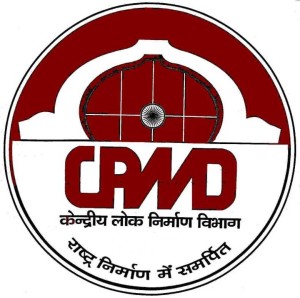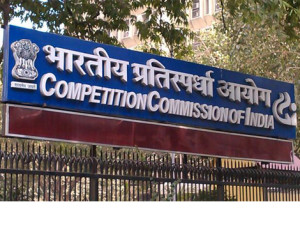Sometime in July 2016, I happened to speak in a conference on Public Procurement organized by the ASSOCHAM, on competition issues in public procurement. In the Q&A session, instances of repeated violation of basic competition principles such as award of contract on competitive bidding to many PSUs by the Central Government were highlighted. After some research some astonishing facts have emerged showing how some ministries of the Central Government and the Public Works organizations (PWO) working under them are openly flouting competition law. This requires a public debate since all government public works are financed by taxes paid by us.
Public procurement in the purchase of goods and services , which includes public works activities , constitutes about 30% of the GDP, with the total annual expenditure of around 15-20 Lakh Crores and that for Union Government alone in the range of Rs. 2.5 – 3 Lakh Crores. Of this the requirement of public works is large and entails huge expenditure of the government. It is imperative that the same should be executed with economic efficiency and with minimal cost on the public exchequer, which can be ensured only when the 27 Central PSUs involved in construction and consultancy business are made to compete firstly with each other and also with private players. No one can doubt that expertise is available in private sector with noted companies such as L&T having proven track records. Whether and why such large private companies do not show interest in government works is a matter of another debate.
A recent trend of awarding large mega projects of thousands of Crores value to a single PSU on nomination basis has been noticed lately. The following anomalies have been observed during my research in the ongoing practice of assignment of works by Govt. Ministries/Departments/ Autonomous Bodies to few select PSUs on nomination basis, in open violation of not only the competition law which mandates a “level playing field “between private and public sector but also even the existing guidelines of CVC, GFRs and government policies, which need to be highlighted and inquired by the Competition Commission of India.
1.Department of Public enterprise O.M. No DPE/13(15)/2007-Fin dated 21.11.2007 (which was issued after the decision of Supreme Court in the matter of M/s. Caterpillar India Pvt Ltd. v/s Western Coalfield Ltd. And others), withdrew the “purchase preference” in favour of PSUs w.e.f. 31.03.2008. This means that in award of contacts for large public works the government shall allow private builders to participate in bidding and select the suitable bidder without any preference to a public sector enterprise unless it emerges as L-1.
2. General Financial Rules ,2005 (“GFR”) in Rule 126(2) , as amended vide O.M. No. 15(1)/E-II(A)/2010 dated 20.08.2010 granted “discretion” to a Ministry or Department, to assign repair works estimated to cost above Rupees thirty Lakhs and original works of any value to any Public Works Organisation, such as Central Public Works Department (CPWD), State Public Works Divisions, other Central Government organisations authorised to carry out civil or electrical works such as Military Engineering Service (MES), Border Roads Organisation (BRO) etc., and such Public Sector Undertakings set up by Central or State Government to carry out civil or electrical works or any other Central/State Govt. organisation/PSU which may be notified by the Ministry of Urban Development after evaluating their financial strength and technical competence.
3. Consequently, now various central government Ministries/departments/other central government organisations are assigning project works to central and state PSUs like M/S NBCC Ltd., M/S NPCC Ltd., M/S HSCC Ltd., HLL Life care Ltd., M/S UPRNN Ltd., M/S Hindustan Prefab Ltd, M/S EPI Ltd., M/S UPPC Ltd., M/S TCI Ltd., M/S HSC Ltd. etc. on nomination basis citing the above amendment in GFR 126(2).Many other PSUs are vying to get works on nomination basis using GFR 126(2) route like M/S Bridge & Roof Co. Ltd., M/S WAPCOS Ltd., M/S IID Ltd., M/S UTI ITS Ltd. etc. There are approx. 27 such known PSUs claiming to be PWOs. Usually the works are being assigned to these PSUs on cost plus basis. 5 to 12 percent of the project cost is being given as the charges for PSU services for executing the project including comprehensive Architectural and Engineering services.
4. It is observed that GFR 126(2) equates PSUs such as NBCC etc. with central government departments like CPWD, MES, BRO etc. which is not legally correct since PSUs have their independent legal entity as companies or corporations under the Companies Act and are not departments under the central government. Moreover, PSUs work on commercial principles as companies and demand a certain profit whereas actual PWOs such as CPWD, MES work on “no profit, no loss” basis. The CPWD manual is a complete code in itself and prescribes stringent guidelines for execution of building contracts by contractors and assures quality of construction..
5. CVC Guidelines issued vide circular No. 18/12/12 dated 11.12.2012 reiterating its earlier guideline issued vide No. 23/7/07 dated 05.07.2007 prohibits award of works on nomination basis even to PSUs. The word “discretion” used in GFR 126(2) does not mean nomination.
6.Often the same PSU is assigned both Architectural & Engineering consultancy jobs as well as construction job by nomination basis. This means that the same PSU will first prepare the building plan and design of the project and also will construct it according to such plan and design. There is a direct conflict of interest as normally an architect has to supervise the construction and certify whether the contractor has constructed as per his design and plan. If both roles are assigned to the same agency, the tendency to overlook discrepancies and errors in construction are likely to be ignored. Moreover this practice is in violation of CVC circular No. 08/06/11 dated 24.06.2011 on conflict of interest in selection and employment of consultants.
7.Ministry of finance Manual of policies and procedure of employment of consultants requires that the “consultants” shall be appointed by following due procedure as per GFR 168 to 175. PSUs are being appointed as Project Management Consultants in some cases without tendering process laid down in these GFRs.
8. A duly executed agreement is necessary before execution of work on commercial basis as per GFR 204. It is observed in some cases, no contract is being executed with PSUs and work is being done on the basis of an MOU.
9.Third proviso to Rule 18 of Delegation of financial power (DFPR) Rules lays down that in relation to public works, the power to sanction expenditure is subject to the provisions of Central public works department code, central public works accounts code, the relevant departmental code etc. DFPR are statutory rules issued in pursuance of clause (3) of Article 77 of the constitution of India. Since PSUs do not follow provisions of Central public works department code and central public works accounts code, hence assigning work to PSU result in exceeding the delegated financial power as prescribed in DFPR is a violation of the Constitution of India.
10.Undertaking directly the works through a commercial organisation like PSU is akin to execution of works by a Ministry/department under its own arrangement. As per GFR 132(i), the broad procedure relating to expenditure on works shall be prescribed by departmental regulation framed in consultation with the account officer, generally based on the procedures and the principles underlying the financial and accounting rules prescribed for similar works carried out by CPWD. PSUs cannot follow CPWD codal and accounting procedures as prescribed in CPWD code, CPWA codes and CPWD works Manual for the simple reason that they are not modelled on departmental working pattern and lacks accounting control by the CAG, prescribed in these procedures. Hence assigning work to PSU result in deviation from GFR 132.
11. PSUs are awarded work on “cost plus commission” basis. GFR 204(vii) discourages award of contracts on cost plus basis.
It is apparent that above serious violations of General Financial Rules and Central Vigilance Commission guidelines (which are illustrative and not exhaustive) which have the status of delegated legislation duly approved by the Parliament cannot be allowed in the strict hierarchal system of governance, but for some hidden motives and corruption within the control and management system of the PSUs by the line ministries. Besides, the huge loss which the government suffers due to this deliberate avoidance of competitive bidding or continued purchase preference given to a single PSU namely NBCC in most cases ( as discussed later ) is mind boggling and deserves a probe as this is not possible without some kind of collusive understanding between the top management in PSUs and the senior bureaucracy in the line ministries.
The above assumption gets strength if one looks at the memorandum of understanding dated 25th October 2016 signed directly (bypassing the CPWD, the authorised central government agency) between the ministry of urban development and NBCC for redevelopment of nauroji nagar , sarojini nagar and netaji nagar general pool residential accommodation colonies ( copy obtained through RTI Act) , with an estimated cost of Rs. 24862 Crores. Besides this, 8 other large contracts for re-development/development of other colonies, including East Kidwai Nagar , have been awarded by the Ministry of Urban Development to NBCC alone without competitive bidding even amongst PSUs. The above 9 large mega sized projects in Delhi alone are estimated to cost Rs. 43060 Crores. Needless to state that due to inevitable project delays the estimated costs are going to shoot up. Let us now try to see how this anti-competitive nomination to NBCC alone has caused huge loss to exchequer.
These 9 works have been assigned to NBCC at a margin of 8 to 10 % of the estimated cost of the works that is approx. 43000 Crores. The Project Management Cost (PMC) provided by NBCC in such projects is of two types – (i) Comprehensive Engineering & Architectural Planning services (all consultancy jobs till NIT stage) – The average fee obtained through price competition for such services in private sector is approx. 1.5% of project cost and (ii) Construction supervision consultancy (post NIT stage) – The rates in private sector for these services through competitive bidding is approx. 1% of project cost. If competition was allowed to be held even within the 27 PSUs only, then the rate comes approx. 3% of project cost for such services. Thus, an approximate direct loss between 3010 Crores (7%) to 3870 Crores (9%) could have been avoided.
Besides above direct loss, there is indirect loss of thousands of Crores of Rupee as cost of the work will get inflated during execution as there will not be any supervision of Govt. engineers on NBCC works. The company has an incentive in increasing cost of the works as its margin is directly linked with cost of the work. Interestingly, as per my sources, the estimated cost of Rs 43000 Crores for the above 9 large projects are quite high since the same was not vetted by any Govt. agency, including CPWD and decided directly between the Ministry of Urban Development and the NBCC . Reportedly, two major anomalies have been found in past estimates of NBCC when they were checked by CPWD. One, though these were claimed by NBCC to be based on CPWD Plinth Area Ratio (PAR) but were found inflated when checked by CPWD officers. Two, CPWD PAR rates are not for commercial transactions with NBCC. These are only rough cost estimates for intra-governmental working. CPWD does not allow use of its PAR for commercial transactions. Still they have been used for assigning works to NBCC.
It may be pertinent to note that the example of the State government of Kerala. Taking note of higher costs generated due to award of contracts to PSUs on nomination basis during 2009-12, the government conducted a thematic audit and found that absent any competition the PSUs were also not able to complete the works without time and cost over-run. There was no mechanism available with the Department to ensure that quality was maintained in respect of works executed by PSUs. The Department did not exercise control over the concessions and privileges extended to PSUs and was not able to ensure that the benefits were not enjoyed by ineligible contractors. Consequently, the Kerala government (Finance Department) vide a GO dated 30.7.2014 issued stringent guidelines prescribing accreditation of the state PSUs by a high level committee before becoming eligible to be considered for government projects and restricted award of project contracts by nomination by only such departments or autonomous bodies which did not have any permanent engineering wing to only such PSUs (both Central and State PSUs) which agreed to follow Kerala PWD manual. Further, it fixed the PMC cost to 5% for all such projects with estimated cost exceeding Rs. 5 Crores and a maximum PMC cost of 8% for projects for all works below Rs. 1 Crore. The other State governments needs to consider emulating the Kerala example.
As if taking a cue from the Kerala government, the Central Government ( Ministry of Finance) also amended the GFR 126 vide OM dated 13.4.2016 and re-introduced the distinction between public works organization /agencies of the Central Government i.e. CPWD, MES, BRO etc. and PSUs dealing in construction projects like NBCC etc. The amended GFR 126(3) mandates that while awarding projects to PSUs. [( and not to PWOs under sub rule (2)], the ministries, departments etc. shall ensure competition amongst such PSUs ,essentially on the lump sum service charges or PMC to be claimed. This amendment clearly prohibits award of contract by any ministry of the Central government to any PSU on nomination basis.
But in spite of the above amendment in GFR 126 effective from April, 2016, how the Ministry of Urban Development has awarded a large project of Rs. 24682 Crores by nomination to a single PSU, NBCC, gives rise to suspicion and smacks of some “PWO scam”, which needs to be investigated by all enforcement agencies. CCI may also like to take suo motu cognizance and initiate an inquiry.









